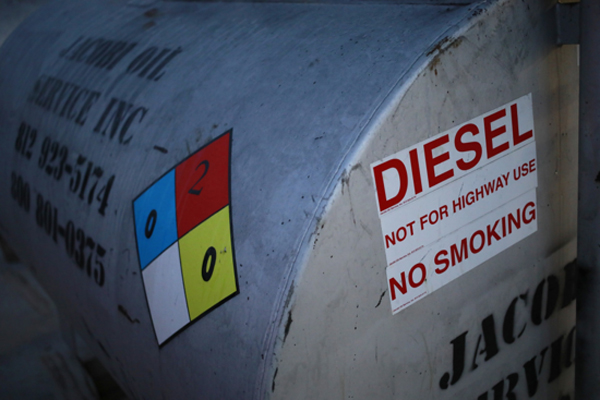
By Javier Blas
Heating oil is not what naturally comes to mind in the middle of August — particularly during a heat wave in Europe. Moreover, the market appears calm on the surface, with prices down 30% since March.
Dig a bit deeper, though, and there’s a storm brewing.
America and Europe ordinarily use the low-demand seasons of spring and summer to rebuild their stocks of middle distillates — heating oil and diesel — for use during the winter. So far, they have largely failed to do so.
In the US, middle-distillate inventories typically increase by 20 million barrels from mid-April to mid-September. However, stocks are up by only 2 million barrels this time as refiners concentrate on making gasoline and overseas demand drains local stocks. In Europe, the situation is similar.
The US East Coast is of particular concern. The region is home to New York Harbor, the pricing point for US heating oil. It’s also where the demand is: of the roughly 5.3 million households that use heating oil in America, more than 80% are in the Northeast. On a seasonal level, East Coast middle-distillate inventories are the lowest since at least 1992.
Typically, stocks start falling there by mid-September, and soon after in the rest of America and Europe, suggesting the industry has all but run out of time to rebuild the buffer.
High prices will be needed to force demand down and avoid running out of supply. But even high prices may not dent consumption enough because German industrial companies are switching from gas to oil, using more heating oil and diesel for electricity and steam production.
Ironically, Europe is for now relying on Russian diesel to fill the gap, with imports in June and July rebounding to prewar levels. Starting in February, however, Europe won’t be allowed to import Russian diesel as sanctions over the Ukraine invasion take effect. By then, the heating oil market may feel as hot as the weather does now.
______________________________________________________________________
Javier Blas is a Bloomberg Opinion columnist covering energy and commodities. He previously was commodities editor at the Financial Times and is the coauthor of “The World for Sale: Money, Power, and the Traders Who Barter the Earth’s Resources.” @JavierBlas. Energiesnet.com does not necessarily share these views.
Editor’s Note: This article was originally published by Bloomberg Opinion, on August 12, 2022. All comments posted and published on EnergiesNet.com, do not reflect either for or against the opinion expressed in the comment as an endorsement of EnergiesNet.com or Petroleumworld.
Use Notice: This site contains copyrighted material the use of which has not always been specifically authorized by the copyright owner. We are making such material available in our efforts to advance understanding of issues of environmental and humanitarian significance. We believe this constitutes a ‘fair use’ of any such copyrighted material as provided for in section 107 of the US Copyright Law. In accordance with Title 17 U.S.C. Section 107. For more information go to: http://www.law.cornell.edu/uscode/17/107.shtml.
energiesnet.com 08 12 2022












